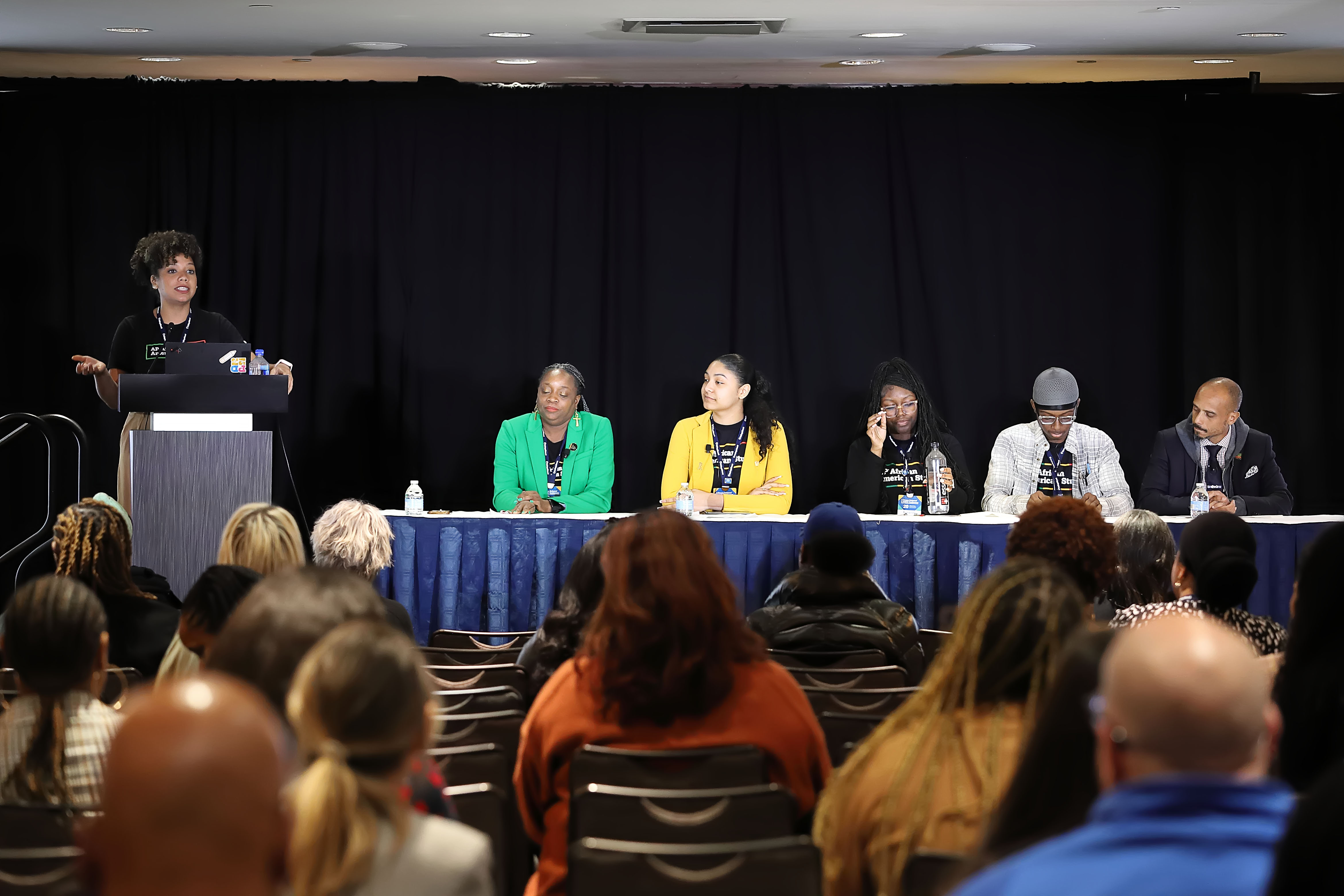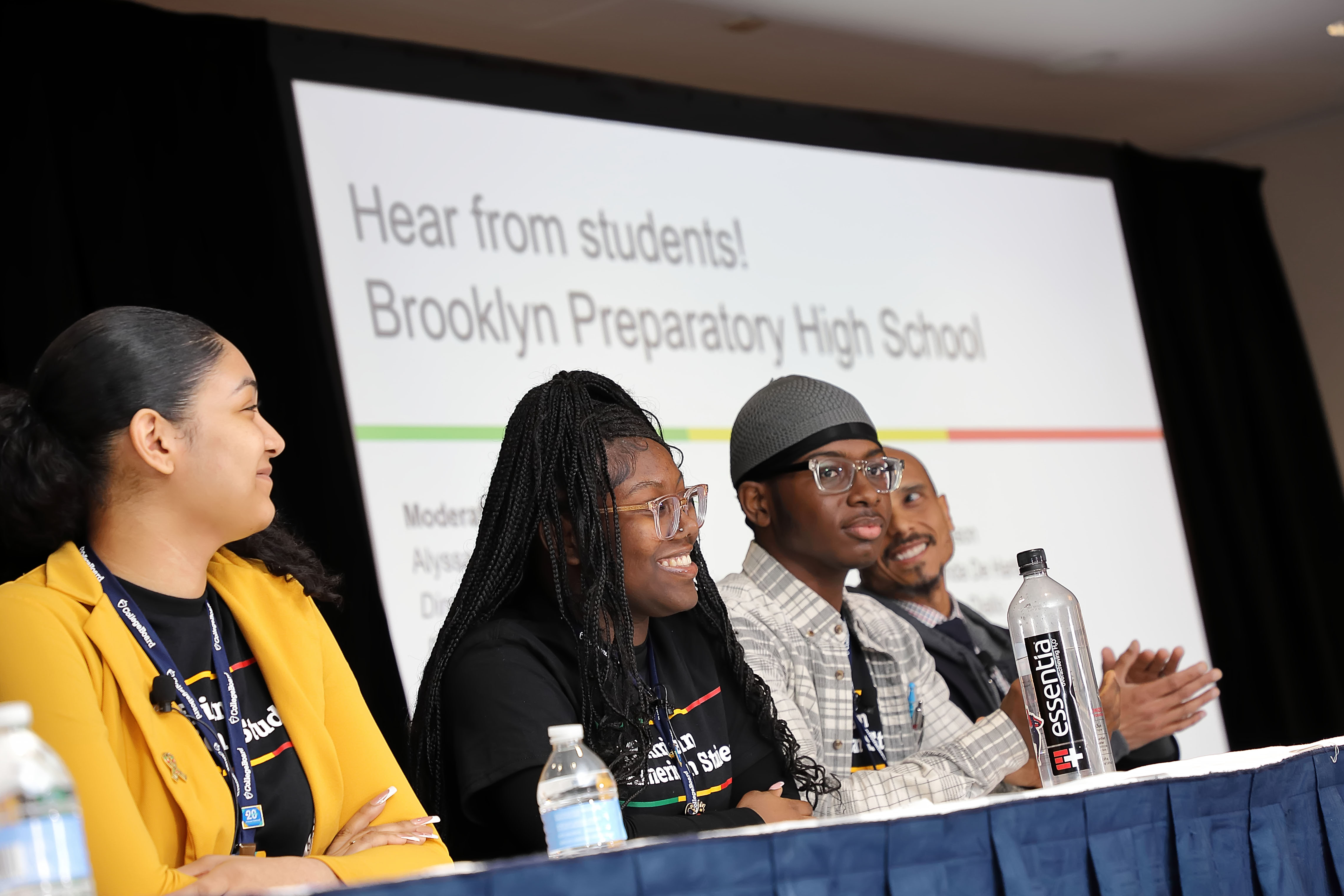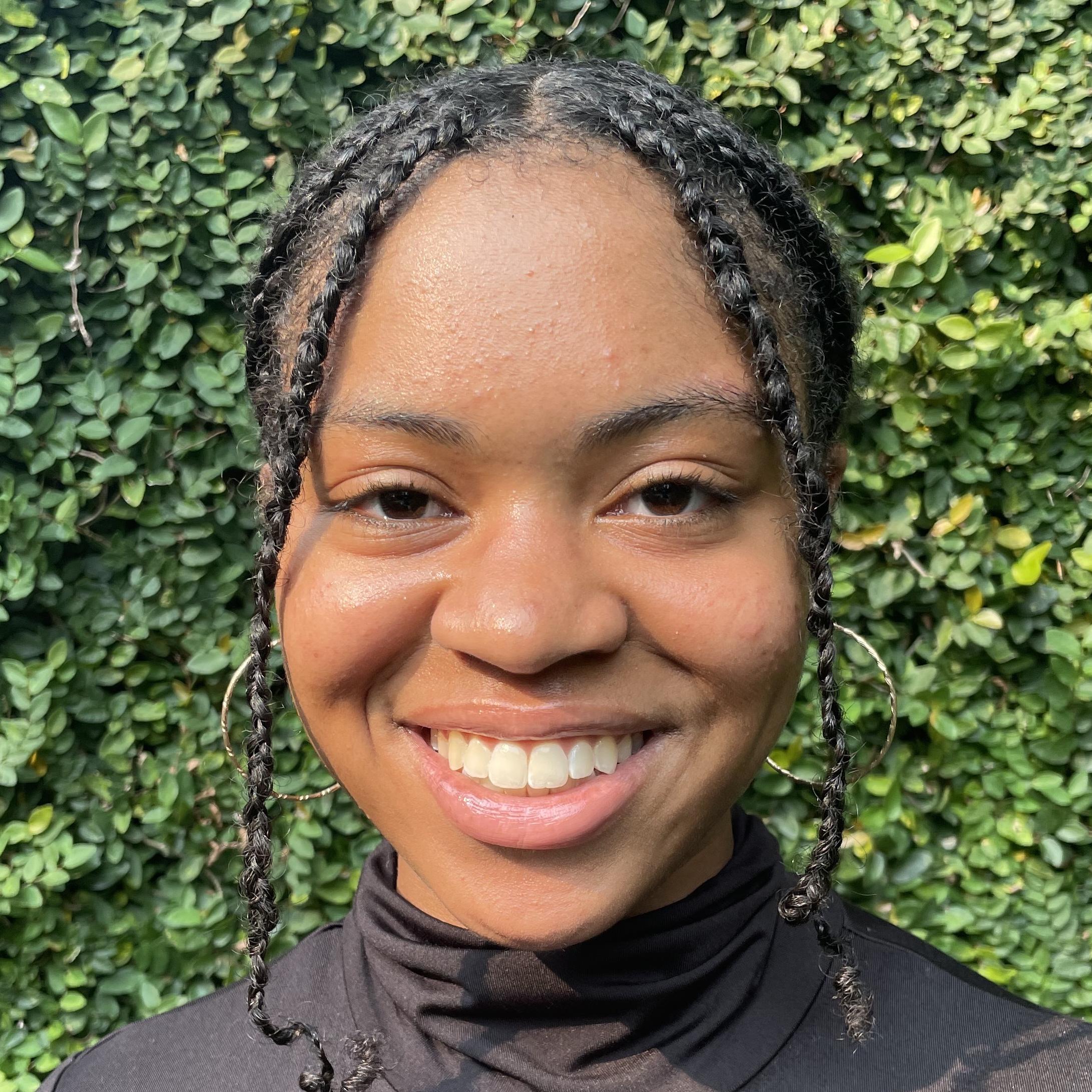A Dream Deferred | HBCU Conference 2024
Inside the AP African American Studies Student Panel

Pictured left to right: Alyssa Aloyo, Shannah Jewsbury, Kiona R., Samanda D., Amadou D., Tre Johnson
At Brooklyn Preparatory High School, students were introduced to AP African American Studies through a pilot program, making them some of the first students to take the course. At the 2024 A Dream Deferred™ conference, students and teachers offered their insight on the impact of the class.
Moderating the panel, Alyssa Aloyo, director of AP African American Studies engagement at College Board, led the discussion and provided an overview of the course. The Brooklyn Prep students—Samanda D., Amadou D., and Kiona R.—were joined by teachers Shannah Jewsbury and Tre Johnson.
Course Overview
As Aloyo explained, AP African American Studies is an interdisciplinary course that examines African American experiences through direct encounters with rich and varied sources, drawing from the fields of literature, the arts and humanities, political science, geography, science, and more.
The course includes an individual student project—driven by the student’s interests—in which they can pick a topic, go through research and primary sources, and present their findings to the class. In addition, the course reviews and discusses artifacts from the Smithsonian National Museum of African American History and Culture, along with artworks by Jacob Lawrence and Loïs Mailou Jones.
Q: What were your initial reactions before starting the pilot program?
Because she’s from Guyana, Samanda felt that the course would be a good opportunity to know more about herself—through learning about African American history.
Kiona expressed wanting to take the course because of the knowledge she knew she could gain and because of how different the material was compared to her other classes.
Amadou heard that it was a “vocal” class, in which you can express who you are. Because he’s a self-proclaimed social person, the course felt like an exciting opportunity to be himself in a way that he couldn’t, especially compared to some of his other classes.
Tre Johnson recalled seeing support for AP African American Studies from students on social media: “Students went to Twitter and really wanted it. It felt like a win.”
Q: How do you feel about your experience with the pilot course?
Kiona talked about feeling prepared to take the AP Exam. She found herself enjoying getting to engage with the class through Socratic seminar discussions, introduced to her by her AP teacher Shannah Jewsbury. “The material of the class branches out to today’s society.”
Jewsbury points out that when they leave her and go to college, “they’ll not be imposters.” Noting that there are things more important than exam scores, she added, “The real test is in life.”
Amadou also praised Jewsbury’s teaching, describing how she hasn’t only equipped him to analyze texts. She’s also taught him how make connections he didn’t realize were possible. Unsurprisingly, the AP African American Studies pilot course allowed Amadou to tap into a practice of self-advocacy and speaking up for himself.
During the panel Q&A, one Colorado teacher asked how a non-Black teacher could navigate the course. Jewsbury advises, “Be vulnerable, take a risk, and be a student within being a teacher.”

